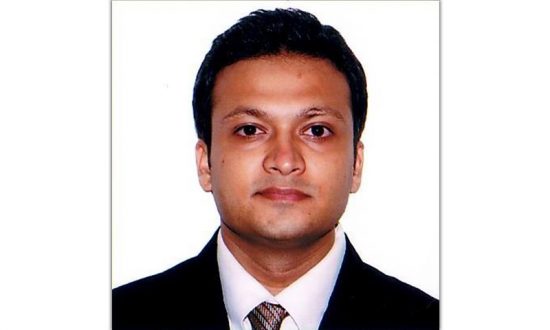With more than a decade of experience in the EdTech domain, Sunil currently leads TPL’s Executive Education (India) Division. Focused on business outcomes and results, Sunil’s responsibilities include sales, marketing and business development, thereby driving profitability and growth for the Executive Education division. Sunil has earlier been associated with Genius Pro School Pvt. Ltd., Metro Cash & Carry Ltd., Bennett, Coleman & Co. Ltd., and Hutchison Maxtouch (P) Limited in his professional career.
The world is at the cusp of the fourth industrial revolution, as new technologies like 5G, quantum computing, AI, and blockchain promise to revolutionize how businesses operate. Are corporate leaders prepared?
Within just two decades, the world has witnessed various technological interventions that have created entire industries and disrupted many of the old ones. The arrival of smart gadgets, machine learning, IoT, e-commerce, Fintech, Big Data, and other advancements have fostered new business verticals that are dominating the global business flow and interactivity. In such a fast-changing world, there is a constant need for upskilling and reskilling to meet evolving business needs.
Organisations across all industry sectors are trying to adopt new technologies as part of their business models. Consequently, a gap exists between the skills people possess today and the skills they will require to be future-ready. According to research on the “future of work” conducted by the Boston Consulting Group, the World Economic Forum, and Burning Glass Technologies, addressing this gap is the number-one challenge for companies adopting new technologies. For organisations, continual upskilling and successful implementation of new frameworks are imperative to ensure that they meet expectations of a world governed by lightning-fast business advancements. Upskilling is especially important for leadership and senior management as they play a prime role in driving the future trajectories of their organisations. This is even more relevant when geographies no longer bind an organisation’s spread and multiple ethnicities and cultural identities meld in the corporate space.
Leadership Vacuum
Across the corporate spectrum, it is a widely acknowledged fact that competent leadership translates to better company-wide performance. According to McKinsey’s Organisational Health Index (OHI), which analysed 5+ million survey responses and factored in over 1 billion data points, companies with top quartile leadership-effectiveness generate 3.5 times more shareholder return. Yet, a look at the data reveals that organisations are struggling to build effective future leadership in the face of constantly evolving business needs. In a survey of CEOs by Fortune magazine, only 7 percent of CEOs believed their companies were building effective global leaders. Other reports have arrived at similar conclusions.
The Leadership Development Trends report by Mercer-Mettl estimates that around 80 percent of the organisations in India face a leadership talent shortage. Similarly, the Global Leadership Forecast (GLF) conducted by EY, Development Dimensions International (DDI), and The Conference Board found that developing ‘Next Gen’ leaders was among the top-most challenges for global C-level executives.
There are many reasons why building adept leadership can be challenging for organisations. In an ever-evolving world, leadership and management skills learned a decade ago need relevant upgradation in the face of new digital paradigms. Often, the major challenges for experienced professionals who wish to pursue quality management education are their professional and personal commitments. For most professionals, it is not feasible to opt for a full-time management degree and leave their jobs. Many people cannot undertake such a time-intensive commitment, and the opportunity cost associated with leaving their full-time job is too high. As such, developing the skill sets required to reach leadership positions becomes an insurmountable challenge for most, leaving organisations with a leadership vacuum.
Top-notch Institutes are Offering Smart Solutions
Keeping in view the constantly evolving needs of modern-day professionals, some of India’s premier institutions have come up with hybrid solutions, customised to the needs of executives who intend to pursue quality management education without compromising on their prior commitments. Consider the case of IIM Raipur, which has made groundbreaking progress in customising programmes geared towards the needs of senior and managerial professionals by harnessing the power of educational technologies.
IIM Raipur has introduced more than ten different certification programmes of varying durations, with an aim to enhance the subject matter understanding of executives across diverse areas such as general management, digital marketing, leadership development, change management, operations management, data sciences, financial risk management, etc. Their one-year Senior Management Programme is designed to catalyse the career advancement of executives by training them to undertake senior management roles in India’s leading companies. The uniquely curated programme, taught by IIM Raipur faculty and handpicked senior management professionals, deploys a participative and engaging pedagogy to facilitate skill-based learning for executives aiming to transition into senior management roles. The programme comprises both online and on-campus modules to provide executives with a fine balance of cross-functional expertise, critical to the formulation of growth strategy and successful organisational transformation. Candidates even receive the much-coveted IIM Raipur Executive Alumni status upon successful completion.




